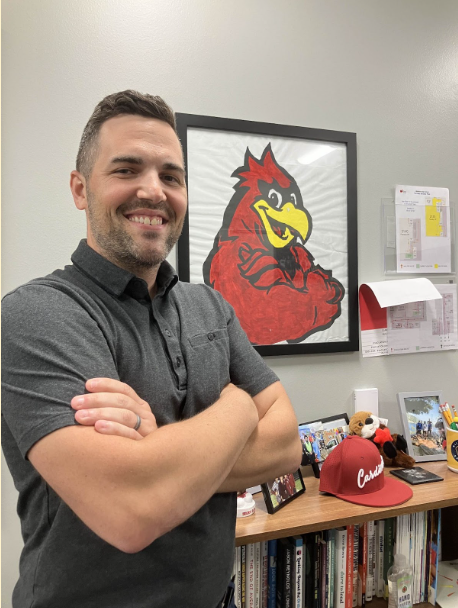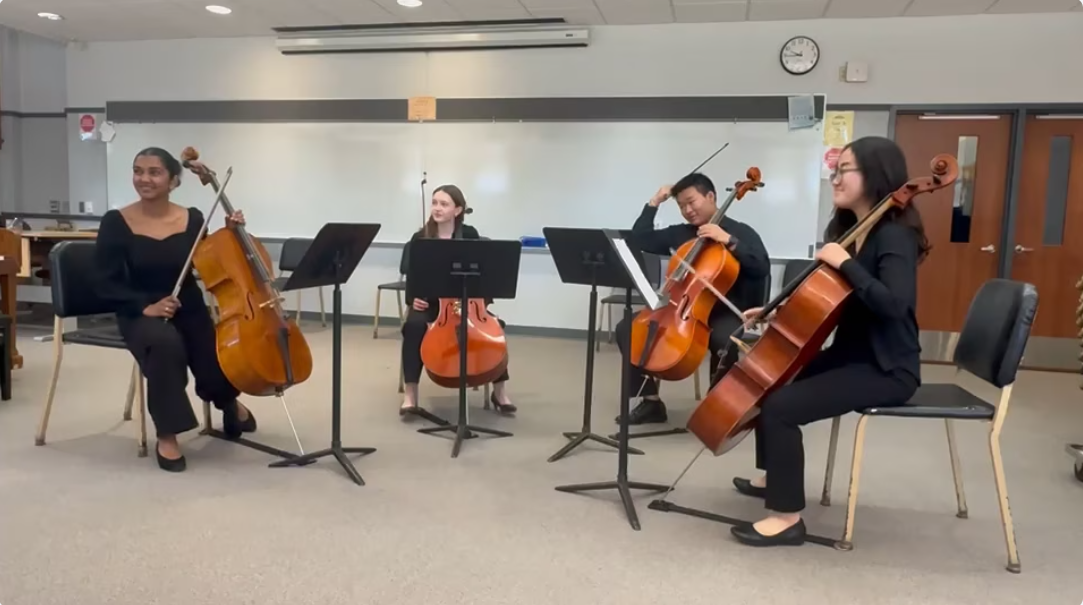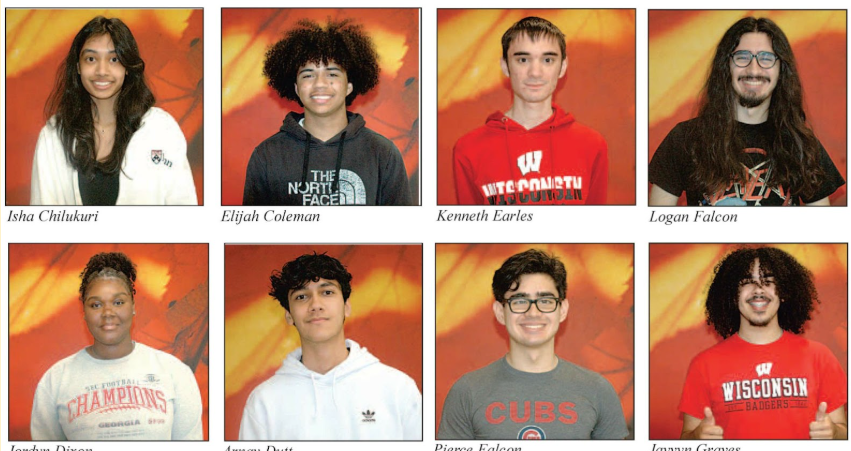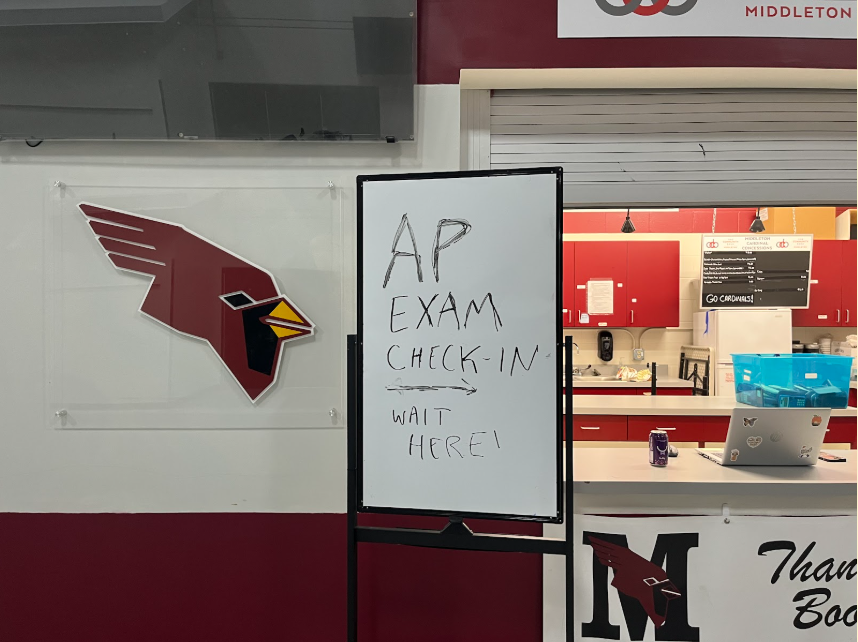Does School Start Too Early?
A bright red alarm clock sits beside an intricate stained-glass lamp. Many people use an alarm clock like this one to wake themselves up in the morning.
February 28, 2022
The feeling of being startled awake by an alarm every morning is one we are all familiar with. As students, we are expected to be up and ready for school in the early hours of the day. For some, this comes almost naturally. But for others, this schedule simply does not work. Those who struggle with waking up each morning likely suffer from sleep deprivation, which can take a toll on their brain function and wellbeing.
When someone is sleep-deprived, that means they haven’t been getting enough sleep, either for an extended period or for just a day or two. This can affect their ability to concentrate, process information, or work through their emotions. It is something that most people have likely experienced at some point in their lives, but it becomes more common when undergoing stress. That stress can be caused by a wide range of factors, sometimes multiple at once. Some of the most common causes of stress for students include school assignments, job expectations, and family or friendship drama. When the stressors in people’s lives start to increase, the result is a dwindling quality of sleep.
Teenagers, in general, happen to have a very different natural sleep cycle than adults and younger children do. However, they are still expected to follow the same schedule as everyone else. They often get a bad rap for being “lazy” and always wanting to sleep in in the mornings. However, it has been proven that teens just have different sleep patterns. According to research conducted by the University of Michigan, puberty alters the “biological clocks” of teenagers. As a result, they become tired at completely different times than adults will.
Adult brains tend to release melatonin, the hormone that leads to sleepiness, at an earlier time than teenage brains do. For teenagers, it happens at some point between 11 p.m. and 1 a.m., whereas adult brains begin to release melatonin at a much earlier time, usually around 10 p.m.
Teenagers also need more total sleep than adults. People 13–18 years old are recommended eight to ten hours of sleep per day by the CDC. When teenagers are naturally falling asleep closer to midnight, and waking up at 7 a.m. or earlier to go to school, that leaves them with only seven hours of sleep at most. This is not enough rest to sustain a healthy lifestyle.
High school students are very busy with assignments, sports, and extracurriculars. They need the appropriate amount of sleep to perform well in school and feel physically and mentally healthy. Because of this, it would make a lot of sense for high schools to move their start times to later in the morning.
Even if schools were to start instruction at 9 a.m., which is only a half-hour later than Middleton High School’s current start time of 8:25 a.m., students would be able to get a much better night’s sleep before coming to school.
Some may argue that this change would be hard on parents who need to get to work on time in the morning. While it may cause a time crunch when getting to school, this schedule would actually work much better for after-school pick-up. The typical work schedule for American adults is a 9 a.m. to 5 p.m., eight-hour day. Parents who work until 5 p.m. can’t get to their children at 4 p.m., which is roughly the current end time at Middleton High School.
If Middleton High School were to push back their start time by 30-60 minutes and end each school day at 5-5:30 p.m., there would be great benefits for everyone involved. Students would get an adequate amount of sleep and subsequently perform better in their academics, parents would have an easier time fitting pick-up into their schedules, and staff could have a little extra time in the mornings to prepare for busy days of teaching and learning.














